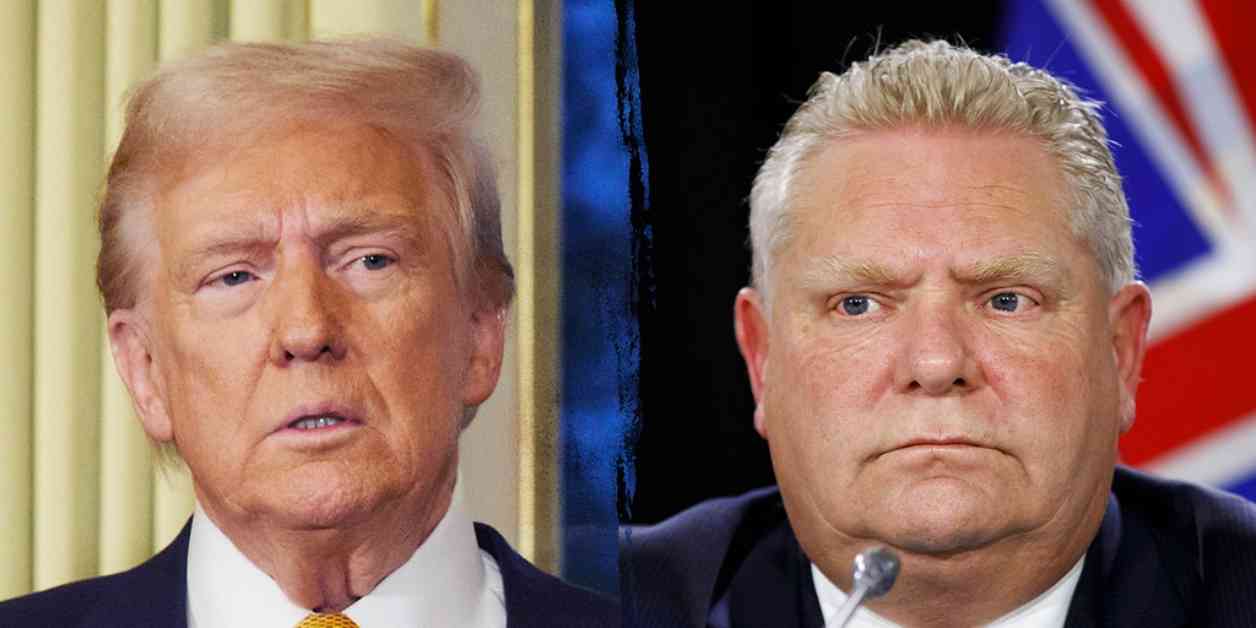Premier of Ontario Threatens Energy Cut-Off Amidst Tariff Threats
The premier of Ontario, Doug Ford, is making headlines with a bold threat to cut off energy and critical mineral exports to the U.S. if President-elect Donald Trump imposes a sweeping tariff on all Canadian products. Trump’s recent announcement of a potential 25% tariff on Canadian and Mexican exports aimed at curbing illegal immigration and illicit drug trade sparked Ford’s retaliatory stance. If Trump follows through on his promise, Ford plans to take drastic measures, including cutting off energy supplies to states like Michigan, New York, and Wisconsin.
Premier’s Retaliation Threats
During a press conference, Premier Ford expressed his willingness to consider retaliatory actions against the U.S. if the proposed tariffs are enacted. He highlighted the potential impact on American states that heavily rely on Canadian energy exports. Ford’s strong stance reflects the seriousness of the situation and the potential consequences of a trade war between the two neighboring countries.
Potential Economic Fallout
The Premier’s threat raises concerns about the economic fallout that could result from a trade dispute between Canada and the U.S. With Canada being the largest source of U.S. energy imports in 2019, any disruption in the energy supply chain could have far-reaching implications for both countries. The escalation of tensions between the two nations is a cause for alarm among experts and policymakers.
Expert Commentary on Feasibility
Despite Ford’s bold statements, experts suggest that unilateral action to cut off energy supplies may not be feasible without federal approval. Political science professor Nelson Wiseman from the University of Toronto pointed out the complexities involved in such a move. The intricacies of cross-border energy trade and regulatory requirements could pose challenges to Ford’s proposed retaliation strategy.
Response from President Trump
President-elect Donald Trump responded to Ford’s threats by emphasizing the economic disparities in the trade relationship between the U.S. and Canada. While acknowledging the strong ties between the two nations, Trump underscored his administration’s stance on fair trade practices. The escalating tensions between the U.S. and Canada underscore the importance of diplomatic negotiations to prevent a full-blown trade war.
In conclusion, Premier Doug Ford’s warning of an energy cut-off in response to potential tariffs from the U.S. highlights the complex dynamics of international trade relations. As the situation continues to evolve, the repercussions of such retaliatory measures remain uncertain. The need for diplomatic dialogue and strategic negotiation to address trade disputes is paramount to prevent further escalation and mitigate economic risks for both countries.





















